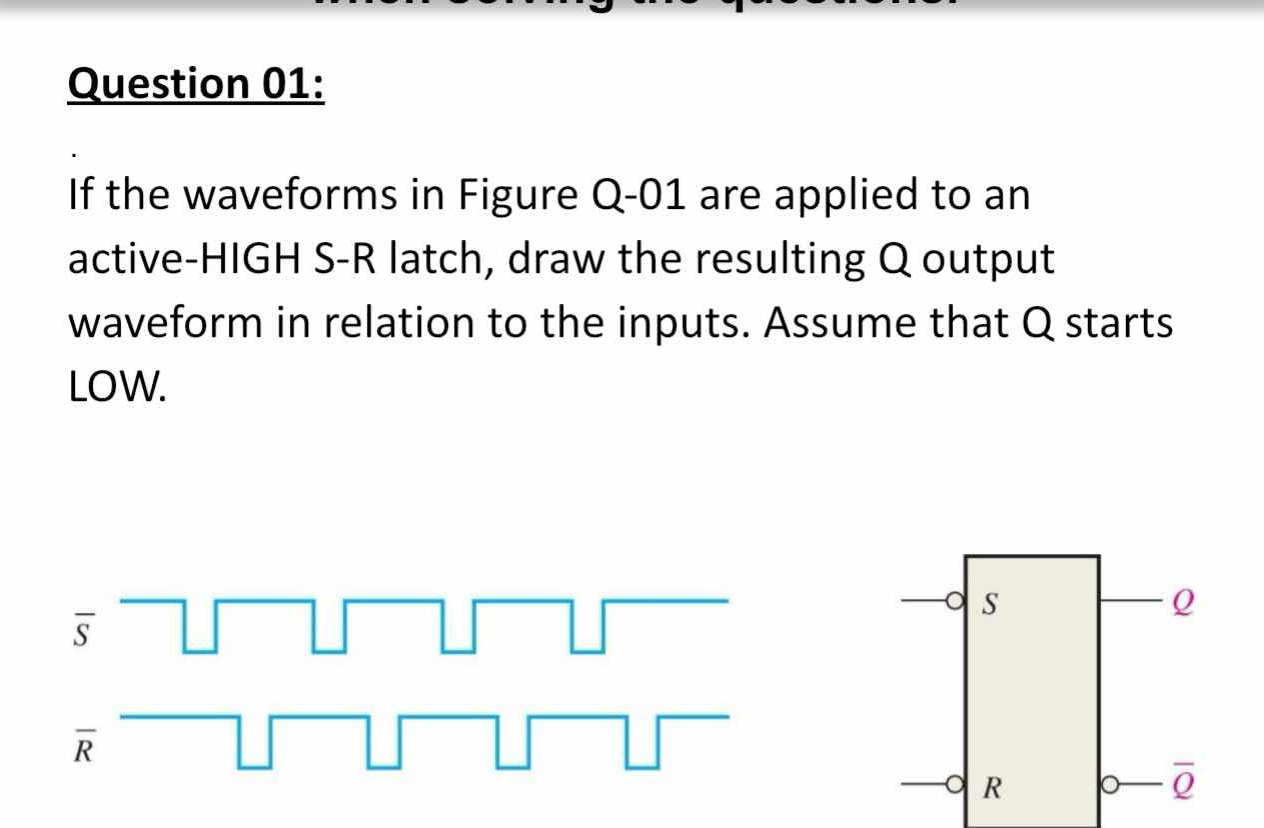If the waveforms in Figure Q-01 are applied to an active-HIGH S-R latch, draw the resulting Q output waveform in relation to the inputs. Assume that Q starts LOW.

Understand the Problem
The question is asking for the waveform of the Q output of an active-HIGH S-R latch based on given input waveforms. It specifies that the output Q starts in a LOW state. The task involves analyzing the latch behavior and drawing the resulting waveform accordingly.
Answer
Q will mirror the changes in S and R depending on their HIGH/LOW states.
The Q output will change to HIGH when S is HIGH and R is LOW, and it will change to LOW when R is HIGH and S is LOW. When both are LOW, Q maintains its previous state. Q starts LOW thus mirrors the S input when S is HIGH and R LOW, and follows the R input when R is HIGH and S LOW.
Answer for screen readers
The Q output will change to HIGH when S is HIGH and R is LOW, and it will change to LOW when R is HIGH and S is LOW. When both are LOW, Q maintains its previous state. Q starts LOW thus mirrors the S input when S is HIGH and R LOW, and follows the R input when R is HIGH and S LOW.
More Information
An S-R latch with active-HIGH inputs follows the states of S and R inputs meticulously, providing a stable output when S and R are both LOW.
Tips
Ensure to account for the condition when both S and R are LOW—Q remains in its last state. Watch for any simultaneous HIGH inputs, although generally considered unstable.
AI-generated content may contain errors. Please verify critical information